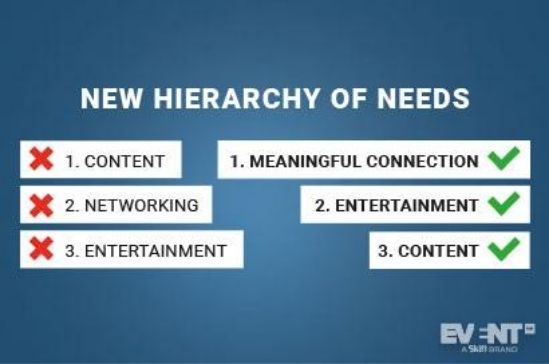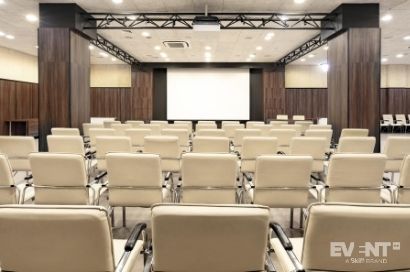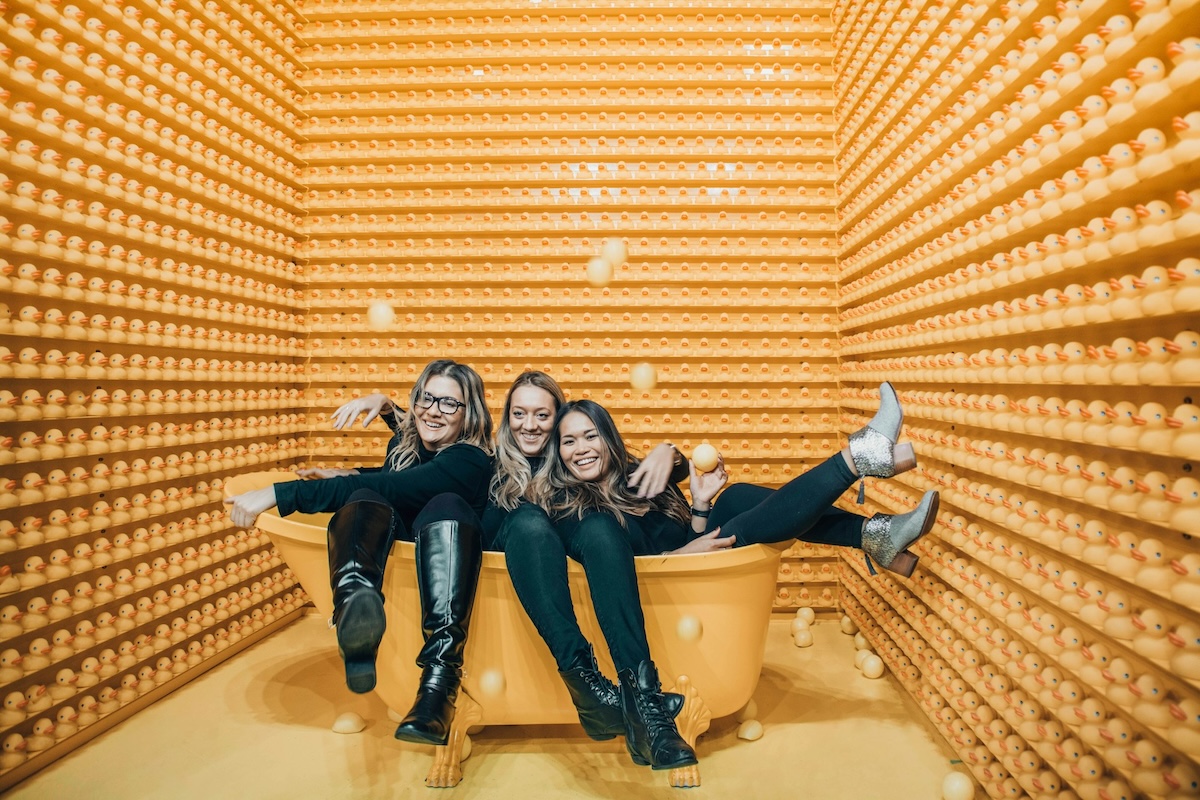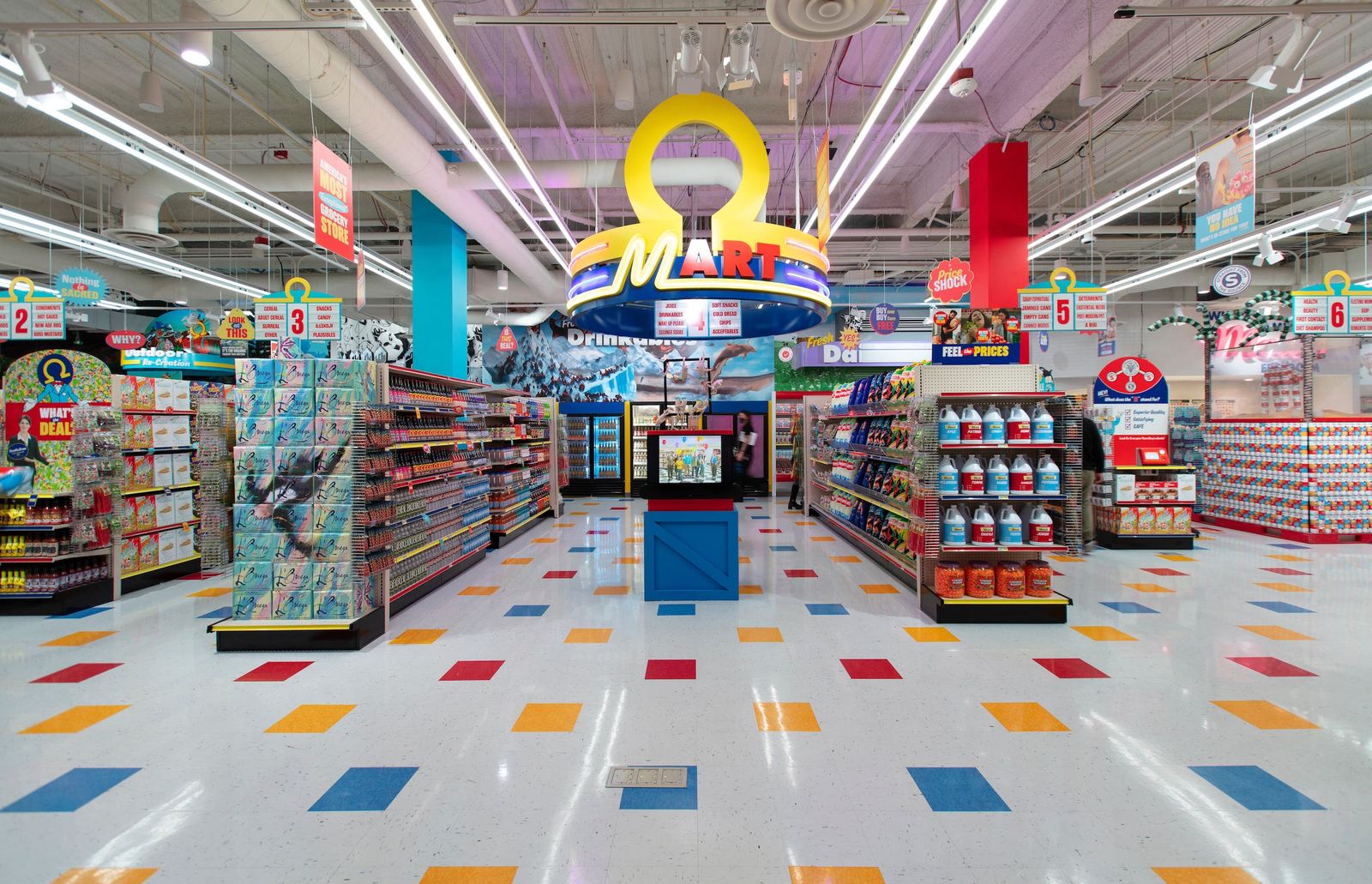Skift Take
Skift CEO Rafat Ali published a piece last week on how the event industry is facing its Napster moment. Is the industry really doomed in favor of virtual events? Not really, but change is required.
I was watching a documentary on the phenomenon of the hikikomori. If you are not familiar, it is about kids that leave school and any connection with society to spend the whole day and night in their rooms, mostly playing video games.
In the worst cases, it goes on for years. These kids’ parents obviously face an incredibly difficult task in bringing them back to normal life. Interestingly, those that succeeded had actually let their children experience gaming as much as possible and connecting with the virtual communities around them.
As a result, they would create solid friendships and connections in the virtual world. These connections were so strong that the urge to meet in person was unbearable. Hence the cure from their condition. By connecting with people online, they get out of their reclusiveness, pushed by the motivation to meet their new peers.
Our Global Hikikomori Moment
When Rafat says that “Zoom is the Napster of the event industry,” I think we need to distinguish between the chronic lack of digitally transformative events and an absence of a need to meet in person. All virtual event technology providers we’ve spoken with acknowledge that virtual events will become virtual components of otherwise live events rather than replacements for them.
The pandemic has created a shared experience of testing virtual events, meetings, and work-from-home realities that would probably have taken 10 years to achieve. It forced us to rely on technology to connect with our work and personal peers.
It reset the ways we interacted with others. What this process has personally left me with is a strange feeling I never experienced before.
While most you reading had to alter your way of life, I’ve worked remotely for the past 10 years. My closest friends and extended family live in another country. The only limitations the pandemic brought along for me was with respect to travel (which I minimized over the last year anyway), grocery shopping (I wanted to order online anyway), and restaurants.
Yet something different is happening. Like many of you, I have started to use virtual means to connect more with people I love and I work with. I started having conversations that I never had before.
As it has for all of us, this hikikomori moment reminded me of how much I value face-to-face interaction. While I’ve lived thousands of miles away from my family, the idea that I could not fly to meet them drove me crazy.
Being at home all the time is reminding me how much I need to be with people. Even the most tech-savvy entrepreneurs of the silicon valley are capitulating.
In my work circle, I miss going to industry events. I have never sat in a single session at an IMEX or PCMA event. I actually prefer to walk around the show floor and say hi to people I’ve known for years.
Virtual events will never give us that. The feeling of shaking hands, hugging (because I hug all my industry friends when I meet them), getting a drink together. The idea that we attend events for the content is just the heritage of the 90s.
Events that fully rely on content were destined to fail anyway. This is why experiences were all the rage until January 2020. Events with top CEOs and great names could be afforded only by sectors such as tech and business. This idea that having a great name on stage was going to sell tickets was an old one.
Events leading up to 2020 were something different. Younger generations could not care less about your stellar line-up. They want to meet with the peers they spend the whole day with online. They want to get out of their hikikomori status.
An example of that tendency is movie theaters. Where Netflix has clearly disrupted the industry and Disney is announcing Mulan on Disney+, bypassing theaters altogether, Cineworld’s CEO talks about an incredible interest in going back to the movies. Going to the movies is more than watching a film. It’s about the popcorn, the large screen, the anticipation. Netflix itself launched the Irishman at movie theaters before sending it to the platform.
Of course, you would not watch a so-so movie at the movie theater. You would wait for it to appear on Netflix or television. The same applies to events, and the rise of virtual has sped up this process.
We already pronounced events dead 10 years ago
Did video kill the radio star? Not really.
My gray beard allows me to recall the exact same conversation 10 years ago. There was no pandemic and the enemies were social media.
When social media was all the rage, many said that Twitter and Facebook were going to replace events. To the stage that some events banned hashtags for the fear of being cannibalized. As we all know the result was quite the opposite.
FOMO was born and we could not stand the fact we had to stay home while these people were having the time of their life.
I bet you thousands that hybrid events will do just that. Increase the FOMO of those watching online. Of course, if your event sucks, there will be no FOMO at all. Which brings me to the next point.
Zoom is a great replacement for bad events
Zoom and virtual event platforms are a fantastic replacement for bad events. Or maybe for those highly reliant on content.
What that means, as Rafat correctly said, is that many events will just transition to online. Those content-intensive events that aim to educate are better off in virtual. No travel, no disruption, no hassle, no risk. Think about doctors having to do their continuing education. Virtual is perfect for them.
On the planner side, nobody likes to be ripped off by venues that charge $20 for a jug of water or $50 per person for reliable wifi. No planner wants to pay for the accommodation and travel for jetlagged speakers. Maximize the profit at a lower cost! Happy times.
If you also think about inclusion and cutting unnecessary travel in favor of a more sustainable world, I am all for it. Actually they were in my top trends for this year.
No connection, no party
After experimenting with virtual events with north of 60,000 attendees, I can comfortably say that people want a television-style production delivery for virtual events. The connection element is not even considered. We all know it’s not like the real thing. Maybe platforms will get better and create a wonderful one-to-one connection experience. But I doubt it.
The reason being that we already have a better way to connect online that stupendously failed during the pandemic: virtual reality. You can have some kick-ass virtual meeting on Oculus if you wanted to, but nobody is using it. Not in the business-to-business world at least.
I remember when I attended my first Skift Global Forum last year. I connected with an attendee in the coffee area, and they told me that they could not miss Skift Global Forum every year because everyone that mattered was there — including the stellar line-up of speakers available to connect on the show floor. This is what events sell.
The fact is that nobody likes bad events, and if you paid your money to attend a bad conference or your boss forced you to go to one — great news, it’s gonna be on Zoom.
Look at tweets that got traction like this one:
Remember conferences?
Four long days of:
Panelist 5: *re-iterates the same, obvious, idea that 4 other panelists have already said, as the other panelists nod in a professional, encouraging manner*
Moderator: “Wow, incredible.”
You: *sips hotel coffee and slowly dies*
— Chris Bakke (@ChrisJBakke) August 18, 2020
What they mean is that they attended bad conferences. Sorry, this is not the events I attend. The planners that plan these conferences have no understanding of what good events look like. It’s like eating cheap fast food and complaining that the patty is not a ribeye.
What will actually happen to all these badly planned events is that, once they move to virtual, they will die a faster death. In fact, once this forced stay-at-home situation ends, the incredible registration numbers some virtual events are experiencing will simmer down.
The sad truth nobody wants to say out loud, not to hurt the feelings of those in distress, is that these unengaging virtual events are showing off their mediocrity online as well. But in the absence of a better alternative, we are signing up to whatever it’s there. After all, in most cases, it’s free.
The incredibly low barriers to entry that virtual events have are just letting audiences realize how much we miss good, engaging, and experience-driven events.
Live events are the biggest business opportunity right now
I was incredibly surprised by the positive reactions to this tweet
If you are an investor sitting on a pile of cash (I know many of you are reading this), you should put it into event planning companies.
2021 has an incredible potential for a huge comeback.
— Julius Solaris (@tojulius) August 1, 2020
I stand by it. I think that live events are the biggest opportunity for 2021. A few reasons:
- Venues’ calendars are filling up exponentially for late 2021
- The amount of talent becoming available in the industry is unprecedented
- Even with coronavirus infecting millions, some people are venturing to attend in-person events
Good events will have an unprecedented chance to be successful if they follow this hierarchy of priorities:

After all, I said that we were having a Napster moment a while ago, but my conclusion now is somewhat more in favor of live events.
My conclusion
Zoom and virtual events are reinforcing the need we have to meet in person. They are also fast-tracking the death of conference models created in the 90s and widely based on content models that do not apply anymore to the world we live in today.
Once things reopen fully, many meetings will happen virtually but the need to meet live will not be replaced. Actually, it will be stronger than ever before. After being captive for so long, the desire to meet our peers is almost unbearable.
Said that, thinking that virtual events are just passing by is naive. Virtual events will replace all those events that didn’t need to be in person to begin with. AKA bad or wasteful events. Soon, the statement ‘this meeting could have been an email’ will be adapted to ‘this event could have been virtual’.
For the rest of us attending awesome live experiences, don’t worry, we’ll meet again.






